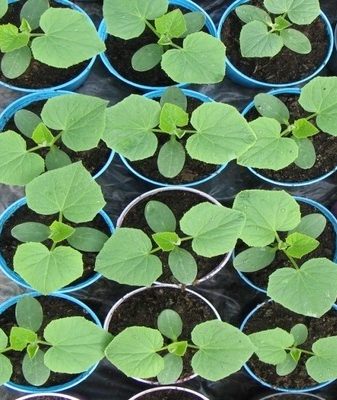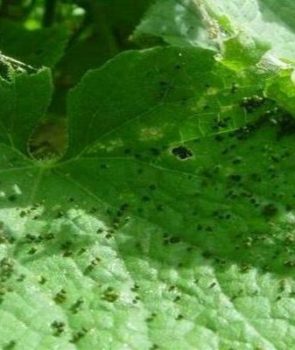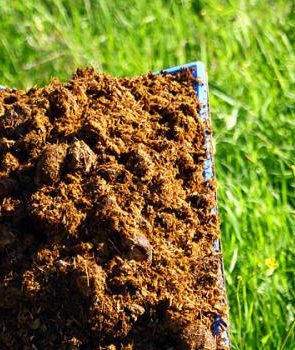Nitrogen fertilizers for cucumbers
Content:
This article describes in detail nitrogen fertilizers for cucumbers, which have a very beneficial effect on the growth and development of cucumber crops.
Nitrogen fertilizers for cucumbers: the role of nitrogen in the growth of cucumbers
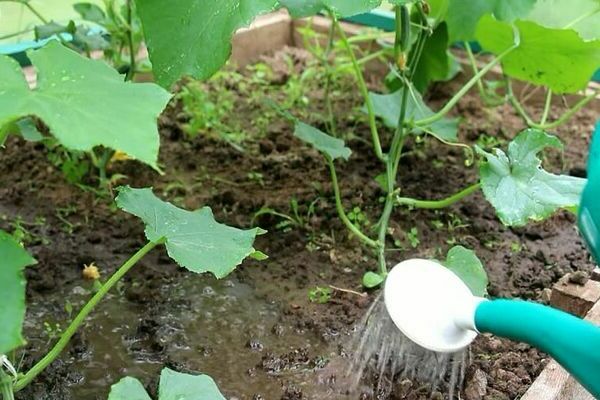
Cucumbers today are almost the most common crop, which is necessarily grown on any personal plot.
It is almost impossible to imagine a summer menu without them. And also this vegetable contains not only excellent taste (especially if the variety and care possibilities were chosen correctly), but also a large amount of vitamins and microelements. Many winter dishes are also prepared with cucumbers, but in their salted or pickled form.
Growing cucumbers is a laborious and exciting process at the same time. In this article, we will dwell in more detail on the role of nitrogen fertilizers in the care of cucumbers.
Nitrogen is, perhaps, the most demanded element that takes an active part in plant growth and nutrition. For cucumbers, nitrogen fertilization is an actual supplement at almost every stage of growth.
At the very beginning, it is important so that the fruit can grow its own cucumber mass. Then it is needed to create strong inflorescences for planting the crop.
And only then nitrogen fertilizers of cucumbers play a significant role in fruiting and prolonging this process. Because each of us would like to enjoy our own harvest for a long time. And this remains an incontrovertible fact.
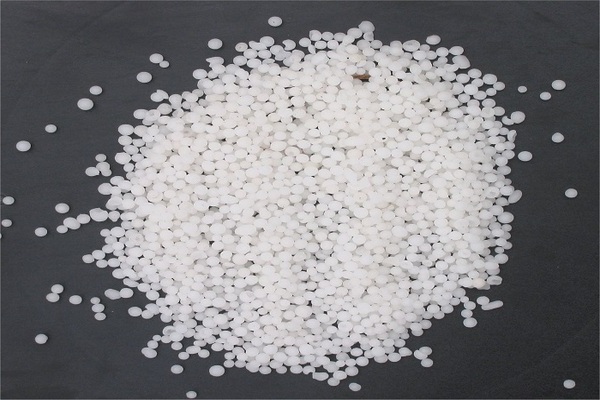
Nitrogen fertilizers for cucumbers: photo
Nitrogen, as a rule, under natural conditions is located in humus - in the uppermost and most fertile soil layer. Under the influence of some microorganisms, organic matter becomes completely accessible for plants to feed on.
Natural nitrogen reserves are often depleted. And at this moment, gardeners need to fill this shortage with the help of special nitrogen fertilizers and additives.
However, a different situation may also arise. The gardener regularly feeds the soil, but cucumbers still refuse to enter the phase of active growth. And here the reason lies rather in fertilization, namely in the soil, which should either be renewed or examined for depletion.
So, with a sharp decrease in temperatures, as well as with an increase in soil acidity, nitrogen is in a form that becomes completely inaccessible for assimilation by a vegetable.
Then the gardener needs to add nitrate nitrogen fertilizers to the soil for cucumbers. If the soil is slightly alkaline, or completely neutral, then it is best to use a different type of nitrogen for introduction - ammonia.
Nevertheless, it must be remembered that overfeeding cucumbers with nitrogen fertilizers is undesirable, and even harmful. Plants are very active, they begin to quickly build up their deciduous mass to the detriment of future inflorescences and fruits.
If the fruits grow, then they have a completely unattractive appearance - they begin to bend or bend.
Therefore, it is worth remembering that any top dressing, including nitrogen fertilizers for cucumbers, is good in moderation. And fertilization should also be under special control at the gardener himself.
With an excess of nitrogen fertilizers, other components accumulate in cucumbers - nitrates, which can affect both the appearance and taste of the cucumber and its beneficial properties.
Nitrogen fertilizers for cucumbers: types
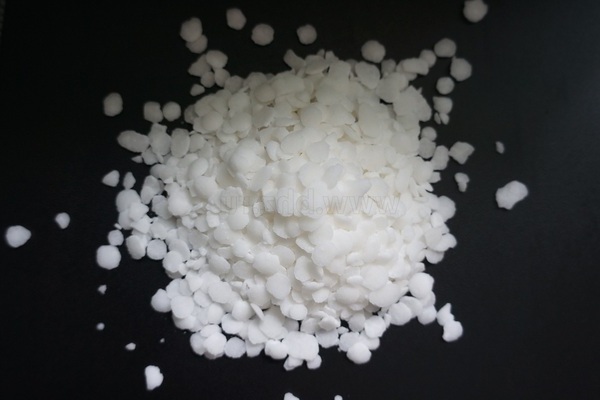
Nitrogen fertilizers for cucumbers: photo
Of course, today there is not one, but several types of nitrogen fertilizers for cucumbers.
These nitrogen fertilizers for cucumbers have been used by humans in plant growing since ancient times. Because they really have an extremely positive effect on the crop, and on the appearance of the plant itself, on the condition of the soil.
In order for organic matter to become truly effective, it must adapt and move into a more convenient form for further assimilation by plants. And this, of course, takes a certain amount of time.
It is not for nothing that many experienced gardeners recommend applying fresh manure fertilizers in the fall. In the autumn and winter period, the time comes when organic matter is stronger and faster to take root.
Fresh manuredecomposing can generate a lot of heat. And therefore, plants can burn from this. And this, of course, will have an extremely negative effect on them, on their qualities.
However, this property is often used by gardeners specifically precisely in order to create the so-called "warm beds". Since some plants require exactly this approach. And you need to take this into account to get a more intense and richer harvest.
In the summer, in order to feed the plants and provide them with missing trace elements, gardeners use a tincture of freshly harvested animal manure and poultry droppings.
For example, 1 volume of organic matter is poured with five liters of water and insisted for seven days. The finished nitrogen fertilizer concentrate is diluted, and by this the cucumbers are fed.
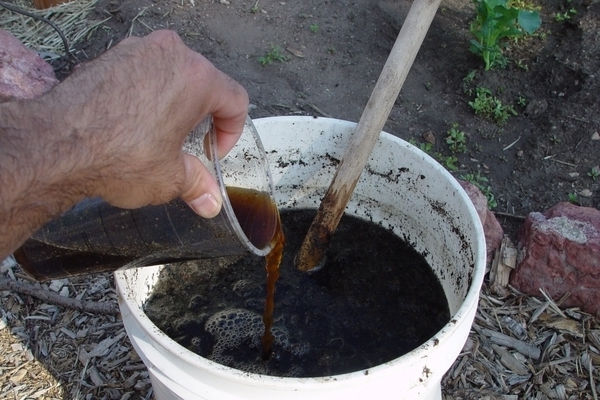
Peat - This is also one of the types of nitrogen fertilizer for cucumbers, but gardeners are very biased towards it, even in two ways.
Peat contains a certain amount of nitrogen, which, nevertheless, in this form is practically not suitable for fertilizing plants with it, since they simply cannot assimilate it.
Peat is more suitable for improving the quality of heavy soils, their composition, which are improved thanks to it. The soils are becoming more fertile, but this cannot be said about the cucumber culture.
However, the value of peat as nitrogen fertilizer for cucumbers can be increased by making peat compost out of it, that is, letting it sit for a while.
The gardener lays down sawdust in the base, which is then covered with a layer of peat and soil. After that, it is necessary to lay a significant layer, which will consist of tops and grass, as well as some plant residues.
Another layer of peat and soil is laid on top. All this is filled with a layer of tincture, which consists of slurry. The preparation time for peat compost is at least two years.
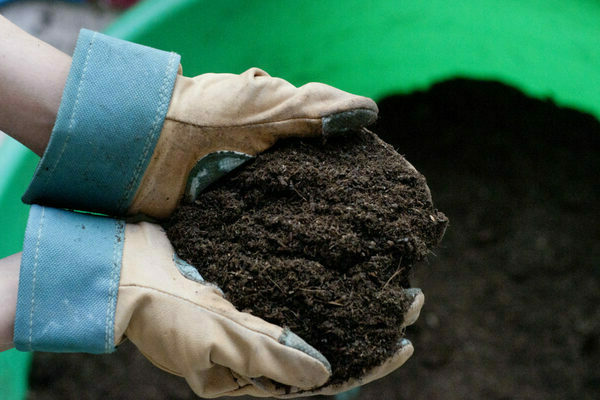
Nitrogen fertilizers for cucumbers: photo
Urea belongs to the category of organic nitrogen fertilizers, which are not produced naturally, but artificially. This fertilizer is familiar to many gardeners, since they recognize it as one of the most effective, and at the same time completely inexpensive.
After the introduction of urea under the influence of microorganisms, it goes into a form that is very quickly and efficiently absorbed by cucumbers.
But there is also a requirement that is presented when using urea: embedding the granules deep into the soil, since during the decomposition of urea a gas is formed, which can evaporate very quickly.
With this gas, nitrogen also evaporates, and urea simply loses all its beneficial qualities and properties for which it is so famous among experienced and novice gardeners.
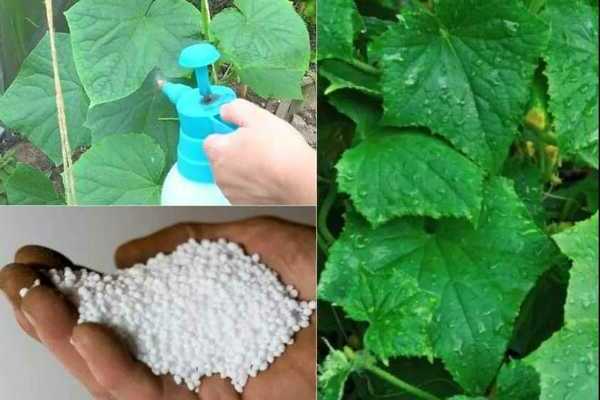
Nitrogen fertilizers for cucumbers: photo
Ammonium nitrate - in other words, this nitrogen fertilizer for cucumbers is also called ammonium nitrate - it is an equally popular nitrogen fertilizer that is used to feed cucumber crops.
Ammonium nitrate is produced in the form of a white powder or granules, which also may not be white, but gray. Granules and powder are very soluble in water.
They can be used on absolutely any soil. Fertilizer is very quickly absorbed, gives new vitality to the plant. Ammonium nitrate for feeding cucumbers is used at any stage of the development of this culture.
Dissolve the nitrate in water and water the plant, or you can also use the so-called root fertilization method.
It is worth focusing on the fact that with very frequent and active use of ammonium nitrate, the soil can significantly oxidize, which must be borne in mind.
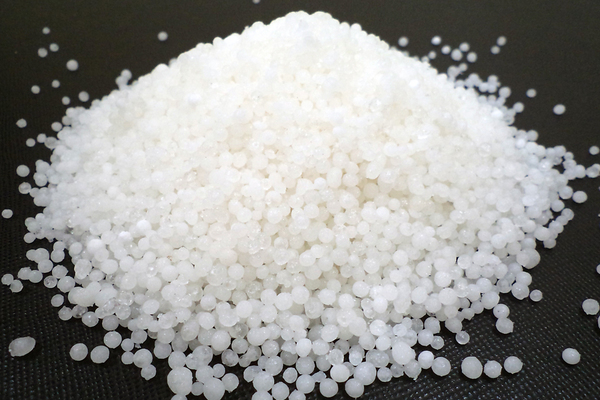
Nitrogen fertilizers for cucumbers: photo
Calcium nitrate Is another nitrogen fertilizer that is used to fertilize and feed cucumbers. Used for this fertilizer and some other names, including calcium nitrate or calcium nitrate.
Nitrogen fertilizer for cucumbers of this type and concentration is more suitable for feeding cucumbers that have been planted on acidic soils.
This is especially true if the plant is grown in greenhouses. It is the presence of calcium that helps plants faster, more efficiently and, most importantly, more fully assimilate nitrogen so that it helps it gain vitality and energy.
The fertilizer dissolves quite well in water. During storage, it quickly absorbs moisture, which is why a caking effect is achieved, which is not always useful for the qualities of this fertilizer.
Cucumbers should be fed once every two weeks, from the very beginning to the very end of the growing season. The solution is also very suitable for spraying cucumber leaves and stems.
Sodium nitrate - it is also called sodium nitrate or sodium nitrate. The use of this fertilizer is also especially effective when we are talking about cucumbers that have been planted on acidic soils.
The fertilizer contains only 15% nitrogen, but nevertheless, it is also very popular among gardeners and gardeners who are extremely attentive to the cultivation and feeding of cucumbers.
In general, each gardener independently chooses nitrogen fertilizer for himself, which he then uses for cucumbers.
It is still worth possessing some information in order not to harm the plants even more, and in order not to spend extra money on the purchase of fertilizers, which in the end may simply not be suitable for the plant.
Since not every nitrogen fertilizer is universal, it is necessary to take into account the characteristics of the soil, its acidity, and fertility. After all, this is the only way to endure the maximum soil from the fact that the gardener applies nitrogen fertilizers.
Features of fertilizers for cucumbers
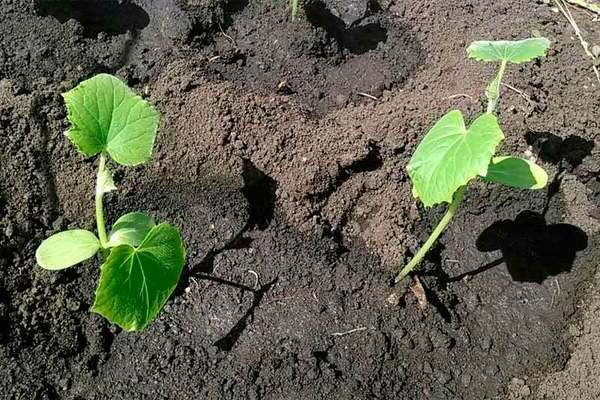
As a rule, during the entire growing season of cucumbers, they should be fertilized about 3 or 4 times. However, if you notice that the plant already looks healthy, bears abundant fruit, and the fruits are healthy and fresh, then the feeding should be reduced to minimum volumes.
Cucumbers, like other plants, often require not only nitrogen feeding, but also fertilizers, which contain impurities of potassium and phosphorus.
When the cucumbers lack potassium, the leaves on the bush begin to gradually turn yellow and curl from the edge inward. Then these leaves die off completely, which is really a sign that the cucumbers are lacking in any kind of nutrition or vitamins.
In addition, the fruits begin to deform - in shape they resemble pears, they have a watery, bitter taste. Because of what, in principle, it becomes impossible to eat them.
Plants also cease to be resistant to temperature extremes, they are attacked by fungi, insects, diseases or bacteria. Cucumbers do not bloom, long-awaited ovaries do not form on them.
Nitrogen-potassium fertilizers for cucumbers
Fertilizing with fertilizers that contain potassium is especially important when the cucumber enters the stage of crop formation. Several types of fertilizers are used here:
- potassium chloride - about 60% potassium, which affects the growth of cucumbers during the growing season.Also, fertilizer is applied to prepare the soil for planting the cucumbers themselves;
- potassium sulfate - it contains a large amount of potassium, which is excellent for feeding cucumbers both in greenhouses and in the open field. These fertilizers are generally chlorine-free. And this is especially important when organizing and carrying out feeding of cucumbers on the site;
- potassium nitrate or potassium nitrate - This is one of the most popular potash fertilizers, which contains potassium and nitrogen. These are two basic elements that are essential for cucumbers at all stages of their growth and development.
We also list such important nitrogen fertilizers for feeding cucumbers as potassium magnesium, a number of phosphorus fertilizers - superphosphate, phosphate rock, diammophos, potassium monophosphate.
As we have already noted, these fertilizers have an extremely significant purpose for the plant. Nevertheless, before use, it is worth using the instructions for use, so as not to cause even more damage to the plants when applying the preparations.
In general, additives, including nitrogen fertilizers for cucumbers, are safe for humans - they do not accumulate in the fruits of cucumbers, so they can be used by both children and adults without fear for their lives and health.
This is very important in the modern world, where there are a huge number of preparations for plant nutrition, which in one way or another can affect human health.


